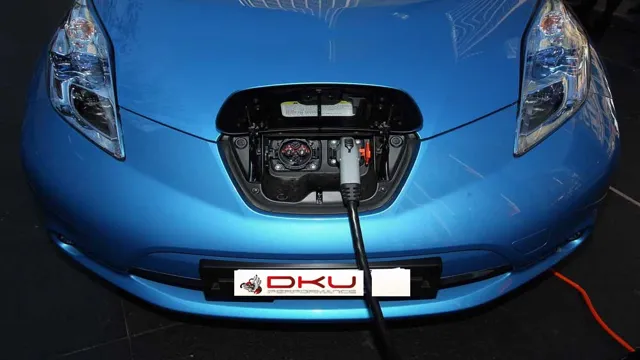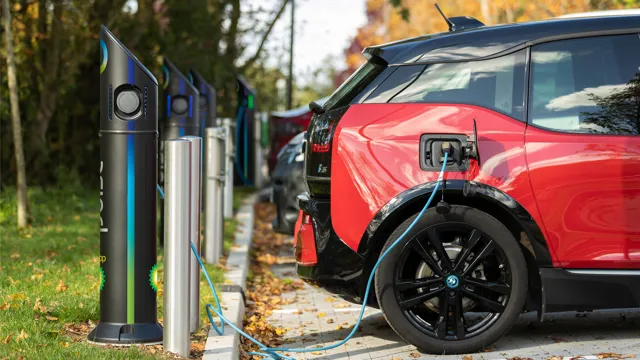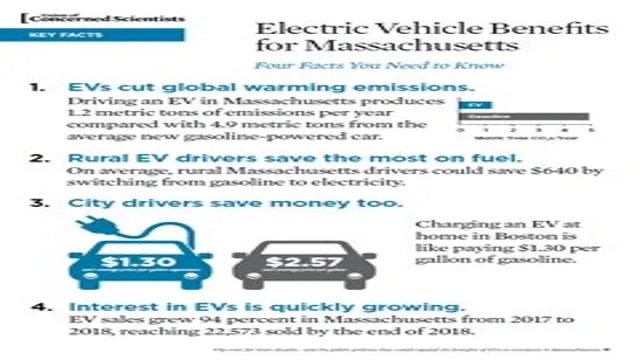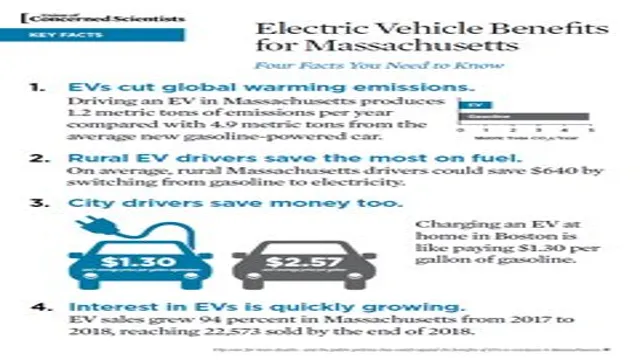Driving Towards a Greener Tomorrow: How Electric Cars Benefit the Environment
With rising concerns about climate change and the need for sustainable transportation, electric cars have been gaining popularity in recent years. Electric cars, also known as EVs, are vehicles that run on electricity, rather than gasoline or diesel. But, what is it about electric cars that make them environmentally friendly? In this blog post, we will explore the ways in which electric cars are helping to reduce our carbon footprint and contribute to a cleaner, greener future.
From reduced emissions to energy-efficient technology, we will delve into the many ways in which electric cars are benefiting both the environment and consumers alike.
Low Emissions
Electric cars are becoming increasingly popular due to their low emissions, which help preserve the environment. These cars are powered by electricity, so they don’t emit any harmful pollutants into the air, making them a clean and eco-friendly option for transportation. Not only do electric cars reduce greenhouse gas emissions and air pollution, but they also help reduce our dependence on fossil fuels, which are non-renewable resources.
By using clean electricity generated from wind, solar, hydro, and other renewable sources, electric cars help to promote a sustainable energy future. Additionally, electric cars are quieter and require less maintenance than traditional gasoline-powered cars. Although electric cars may have higher upfront costs, they are often more cost-effective in the long run due to lower fuel and maintenance costs.
Ultimately, choosing an electric car over a gasoline-powered car can make a significant positive impact on the environment, creating cleaner air and reducing our carbon footprint for future generations to enjoy.
Reduction of CO2
Reducing CO2 emissions is vital in lowering our carbon footprint and protecting the planet. Low emissions vehicles are becoming increasingly popular as people become more environmentally conscious. These cars release significantly lower levels of CO2 into the atmosphere than traditional vehicles and are also more fuel-efficient.
Additionally, low emissions vehicles have a longer lifespan than traditional vehicles, resulting in less waste in the long run. While the initial cost may be higher, the long-term benefits outweigh the initial investment. Investing in low emissions vehicles is not only good for the environment but for our wallets too.
It’s important to consider the impact our actions have on the planet and make choices that benefit both ourselves and future generations. So, the next time you’re in the market for a new car, consider investing in a low emissions vehicle, and do your part in reducing CO2 emissions.
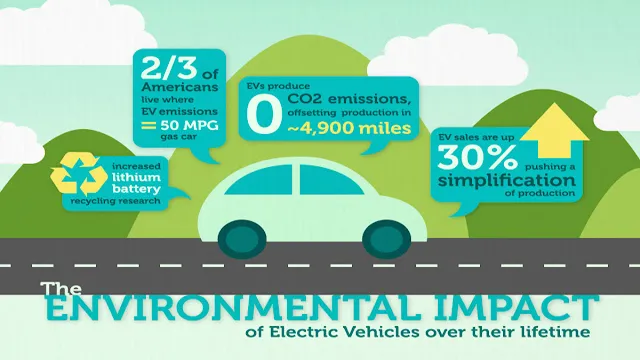
Less Pollution in Cities
With an increasing concern for the environment, many cities are striving to reduce their carbon footprint and minimize pollution levels. More and more people are becoming aware of the negative impacts that air pollution can have on our health, so it’s no surprise that cities are taking action to reduce emissions. Low emissions vehicles are becoming a common sight on the roads, and it’s easy to see why.
Not only do they help to diminish the number of harmful toxins that enter the atmosphere, but they also offer a quieter and smoother ride. By replacing older, more polluting vehicles with newer, lower emissions models, cities can make a significant difference in improving air quality. These vehicles operate on cleaner fuels, such as electricity, hydrogen, or natural gas, which release fewer harmful pollutants than traditional petrol or diesel engines.
Low emissions zones have been introduced in some cities to encourage the use of these vehicles and deter older, more polluting ones from entering certain areas. This is not only beneficial for the environment but also for people’s health. Air pollution has been linked to a range of health problems, including respiratory and cardiovascular diseases, and in some cases even cancer.
By reducing the amount of pollution in cities, we can help to improve health outcomes and make our urban areas more pleasant places to live. In this way, low emissions vehicles are playing an important role in ensuring that our cities retain their appeal and remain desirable places to call home.
Energy Efficiency
Electric cars are becoming more popular due to their energy efficiency, which contributes to a positive impact on the environment. One of the benefits of electric cars is reducing greenhouse gas emissions that come from the burning of fossil fuels. Because electric cars use batteries to power their engines, they do not produce any emissions directly and are much cleaner than traditional gasoline-powered cars.
This means that electric cars can help to minimize the carbon footprint and improve air quality. Additionally, electric cars have the potential to rely on renewable energy sources such as wind or solar power, making them more sustainable and environmentally friendly. So, what benefits do electric cars have on the environment? They can help to reduce emissions, improve air quality, and promote the use of renewable energy sources, all of which make them a promising solution to tackle climate change.
Better Fuel Economy
Fuel economy is an essential aspect of our lives, and it has become even more important as gas prices continue to rise. To help reduce our fuel expenses, we must find ways to increase our cars’ energy efficiency. One simple way of doing this is by making sure our vehicles are adequately maintained.
Regular servicing helps keep the engine running smoothly and ensures we get better fuel economy. Another way to increase energy efficiency is by using a fuel-efficient car that consumes less energy and produces less emissions. By opting for a hybrid or electric car, we can help protect the environment, save money on fuel, and contribute to a sustainable future.
Ultimately, improving energy efficiency is a win-win for us and the environment, and we should make it a goal to prioritize it in our daily lives.
Use of Renewable Energy
Energy efficiency is an essential aspect of using renewable energy sources. The more efficient our appliances, buildings, and transportation systems are, the less energy we require to achieve the same results. One of the easiest ways to increase energy efficiency is by using LED light bulbs.
These bulbs last longer, consume less energy and radiate less heat than traditional light bulbs. Moreover, they provide brighter and more vibrant lighting, making them perfect for almost any lighting need. Another efficient way to save energy is by using programmable thermostats.
These thermostats adjust indoor temperature according to your preferences, so you don’t waste energy heating or cooling when you’re out of the house or sleeping. Similarly, switching off electrical appliances when not in use also saves energy. These small tips may seem insignificant, but they make a huge difference in the grand scheme of things.
By being conscious and adopting these energy-efficient practices, we can efficiently utilize renewable energy and reduce our carbon footprint.
Reduced Dependence on Fossil Fuels
Energy efficiency is a crucial step towards reducing our dependence on fossil fuels. By optimizing how we use energy, we can significantly lessen the amount of fuel we consume, and in turn, reduce carbon emissions. This can be achieved through simple actions like turning off lights when not in use, using energy-efficient appliances, and properly sealing our homes to prevent air leaks.
Investing in renewable energy sources like solar or wind power is also an excellent way to reduce our reliance on fossil fuels. For instance, think of it like a leaky bucket – the more the holes are plugged, the less water is lost. Similarly, by increasing our energy efficiency and investing in sustainable energy, we can slow down the depletion of non-renewable resources and contribute to a brighter, cleaner future.
Less Noise Pollution
When it comes to the environment, there’s so much to consider, but one thing that electric cars can help with is reducing noise pollution. With traditional gas-powered vehicles, motor and exhaust sounds can be deafening, especially in urban areas with high traffic. But with electric vehicles, there’s a lot less noise pollution overall, which can be a huge relief for both humans and animals alike.
Imagine strolling down a quiet street without the constant drone of cars buzzing by or hearing birds singing instead of muffling their tweets. It’s a small but significant benefit that electric vehicles bring to the table thanks to their quiet, electric motors. Plus, with electric vehicles on the rise, less noise pollution on the roads could be just the beginning of a quieter and more peaceful community.
It’s one of many reasons why electric cars are becoming an increasingly popular option for eco-conscious individuals looking to reduce their environmental impact.
Silent Driving Experience
Silent Driving Experience Have you ever noticed how much noise pollution is present on the roads? Honking horns, rumbling engines, screeching brakes – it can all contribute to a stressful and chaotic driving experience. However, with the rise of electric vehicles, this noise pollution may soon be a thing of the past. Electric cars offer a virtually silent driving experience, allowing you to focus solely on the road ahead.
Not only is this more relaxing and enjoyable for the driver, but it also reduces the amount of noise pollution in our communities. While some argue that noise is necessary for safety reasons, new regulations are being put in place to require electric vehicles to make some sort of noise at low speeds. This compromise still allows for a quieter driving experience overall, while still ensuring the safety of pedestrians and other drivers.
So next time you’re considering buying a car, think about the benefits of a silent driving experience – for both yourself and your community.
Reduced Resource Consumption
One of the biggest benefits of electric cars is their reduced resource consumption. Unlike traditional gas-powered cars, electric cars don’t consume gas, which means they don’t emit harmful pollutants into the environment. This greatly reduces their carbon footprint and helps to combat climate change.
Operating an electric car also requires less maintenance compared to gas-powered vehicles, as they have fewer moving parts and don’t require oil changes. Furthermore, electric cars can be charged with renewable energy sources, such as solar or wind power, making them even more environmentally friendly. Overall, electric cars significantly reduce the amount of resources consumed and the negative impact on the environment, making them a sustainable and responsible choice for eco-conscious drivers.
Conclusion
In conclusion, electric cars are the eco-friendly superheroes we need to combat the villainous effects of emissions on our environment. By switching to electric vehicles, we can significantly reduce the carbon footprint that ravages our planet and contribute to a healthier, cleaner world. Not only that, but electric cars also offer financial savings and improved performance, making them a smart choice for both our wallets and the environment.
So, let’s join the electric revolution and become the superheroes our planet deserves!”
FAQs
How do electric cars help reduce air pollution?
Electric cars emit zero pollutants, which helps in reducing air pollution. This makes them a cleaner alternative to traditional gasoline vehicles.
Do electric cars reduce greenhouse gases?
Yes, electric cars can significantly reduce greenhouse gas emissions. Since they run on electricity, they emit no CO2 from the tailpipe, which is the primary driver of climate change.
What is the impact of electric cars on the environment?
Electric cars have a positive impact on the environment as they help reduce air pollution and greenhouse gas emissions. Additionally, electric cars can reduce the dependency on fossil fuels, which can aid in preserving natural resources.
How do electric cars contribute to the overall sustainability strategy?
Electric cars provide an innovative solution to achieve sustainability by reducing emissions and utilizing clean energy. They can also contribute to the broader electric grid and help reduce dependence on traditional fuel sources.

